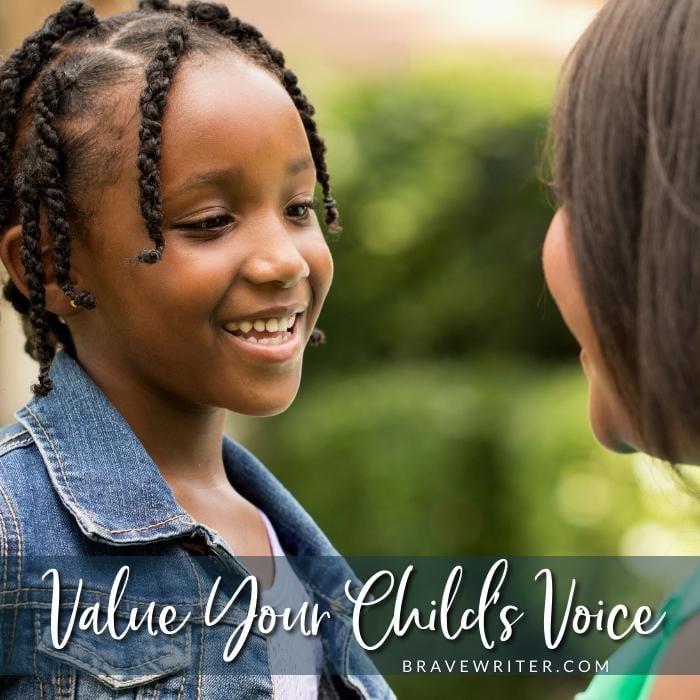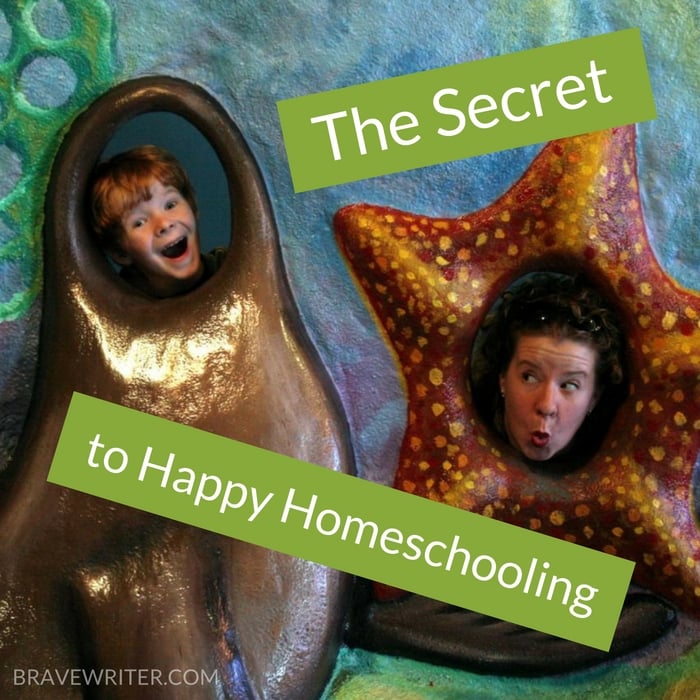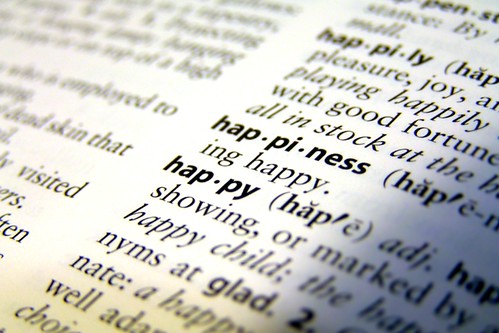
We talk about writing voice in the writing process quite a bit in Brave Writer. We want the writing your kids do to sound like them—to have their vocabulary, inflection, quirky personality, and sense of humor. We don’t want them to sound like a copy of Aesop or the writer of X, Y, Z curriculum. We don’t want them to produce rote writing where no one can tell who wrote it, so devoid of voice it is.
So we start with freewriting.
But what happens when we give freedom to express and little shows up? What if what we find on the page is lifeless and dull, the utter opposite of what shows up in the bathtub or at an amusement park?
Even worse: what if what shows up really does in fact sound like your child, but it’s lifeless and dull (according to you) and feels like the barest beginnings of original thought?
So let’s back up a step.
“Writing voice” is two words. The real word we want to explore is “voice” all by itself.
Peter Elbow (my writing mentor) describes it this way:
“Most children have real voice but then lose it. It is often just plain loud: like screeching or banging a drum. It can be annoying or wearing for others. ‘Shhh’ is the response we get to the power of real voice.
“But, in addition, much of what we say with real voice is difficult for those around us to deal with: anger, grief, self-pity, even love for the wrong people. When we are hushed up from those expressions, we lose real voice.”
Here’s where we sometimes go wrong as parents. We are busy, our children are young and inexperienced. When they risk saying what they really think in the ways they want to really say what they think, we sometimes move into what I call “civilize the savages” mode. We are more worried about the appearance of what they say than what it is, in fact, they are saying.
If your children develop the habit of shutting down their real ideas, thoughts, preferences, wishes, and dreams around you, they will also turn off “real voice.” Then when you go to writing with them, they will turn to you and expect you to tell them what words ought to fill the page, just like they now wait for you to show them what thoughts are acceptable to say out loud.
Writing is a risk, but so is speaking. We must create space for both the prudent, acceptable, “makes Mama proud” words and the “Oh I hope she doesn’t really feel that way” words. We need to pause and let the rumble of language flow through our kids verbally and they must know that you are interested, receptive, and open-minded enough to hear it (without freaking out) in order for them to find their written voice.
You can start today:
Eye contact and a focused minute of conversation where you really hear what one of your kids is saying is the beginning of fostering an environment where what your child means to say becomes the norm for what is written.
You may have to change your own perceptions of what writing is too. It may be that you use an artificial voice when you write—the one the teacher told you sounded more grown up, or the one that keeps you from being perceived as impolite, or the one you use to project a cheery disposition.
Maybe you don’t even write because the risk feels too great and you avoid it.
Take some time to explore how much space there is in your self, in your children, and in your home to express authentic voice (verbally first, in writing second). See what you can do to expand that space…
Baby steps:
“You look angry—want to tell me about it? Want to yell about it?”
“Your giggly, silliness is cracking me up! I want to be as silly as you!”
“It’s okay to be really sad right now. Tell me about it.”
“I hate that too, sometimes.”
“You are so smart using all those big words!”
“I would love to hear you tell me more about that story! Go for it. I want every tiny detail.” (Instead of insisting on summary)
See what happens… I know for me, I have to put my phone down and walk away from the computer. I also find that it’s easy to tune out my kids when the topic doesn’t interest me or they are struggling to find the words. I have to remind myself to pay attention and to care. You can’t do it every time, but you can do it some of the time, for each child in a rotating way. Be mindful and conscious.
























